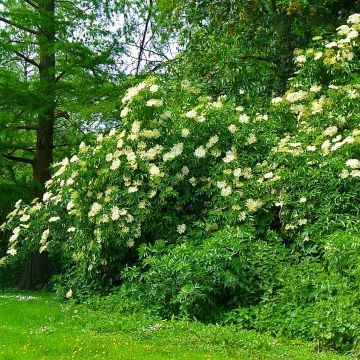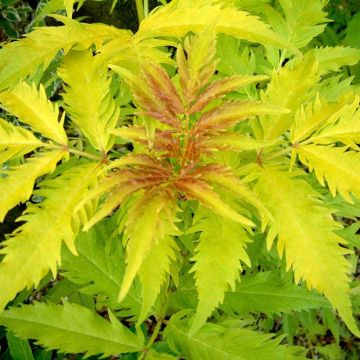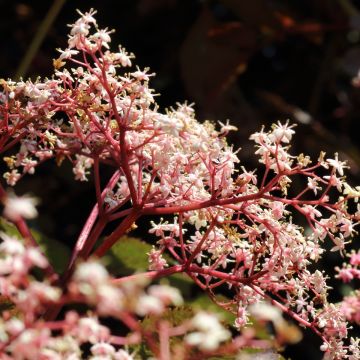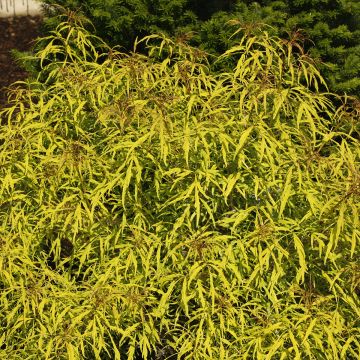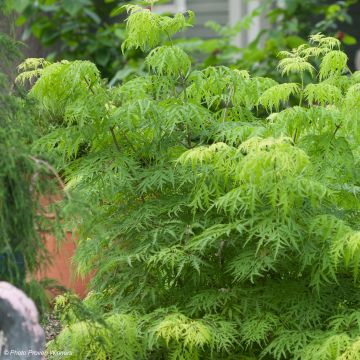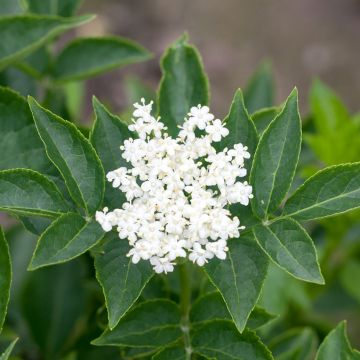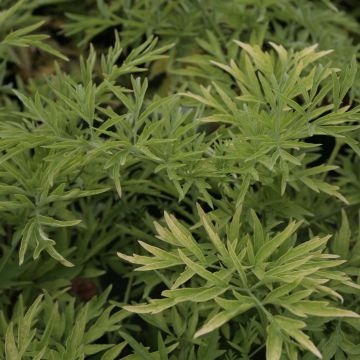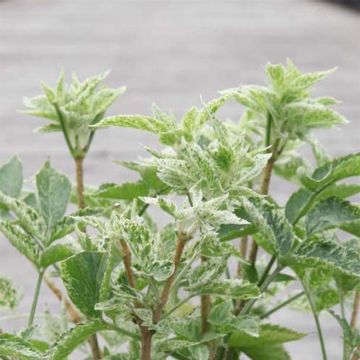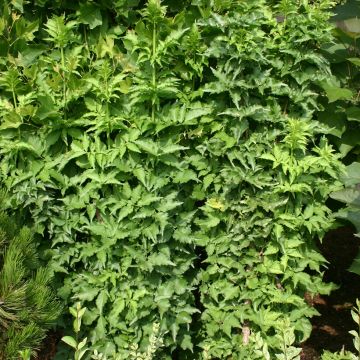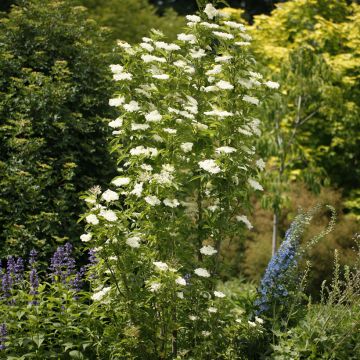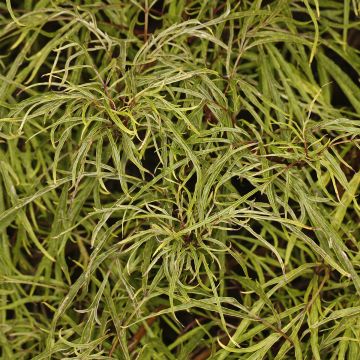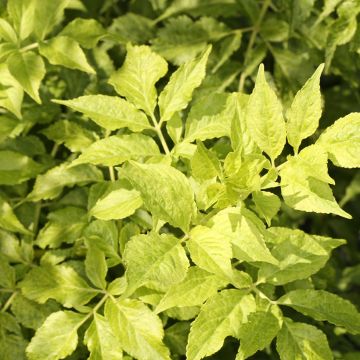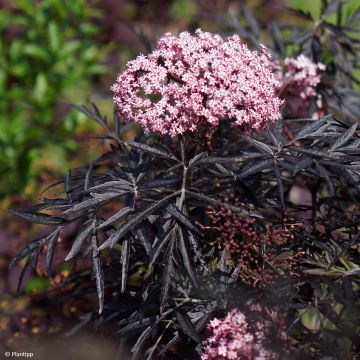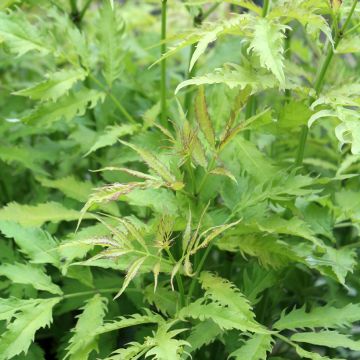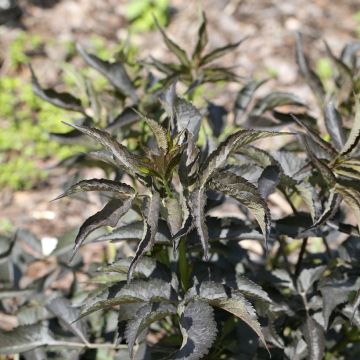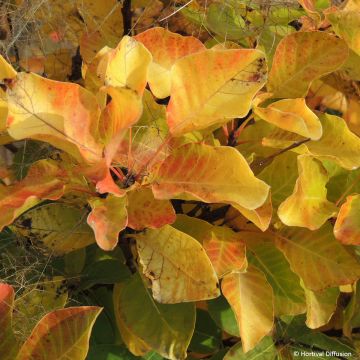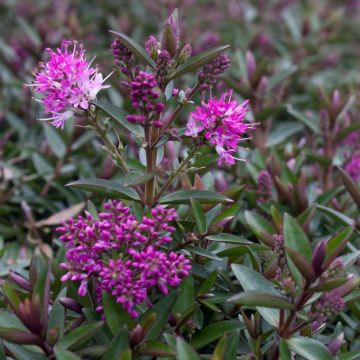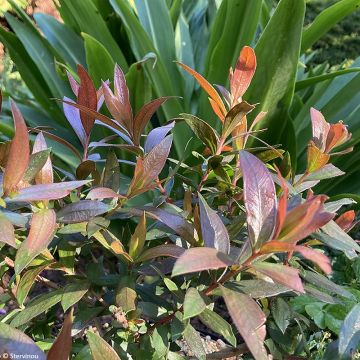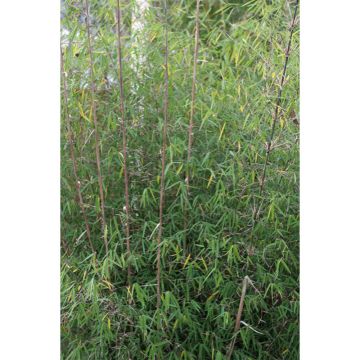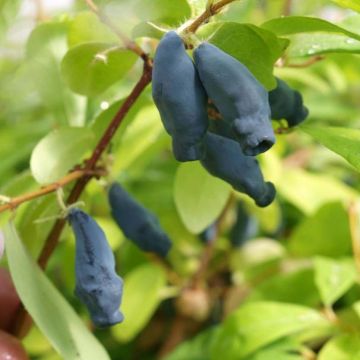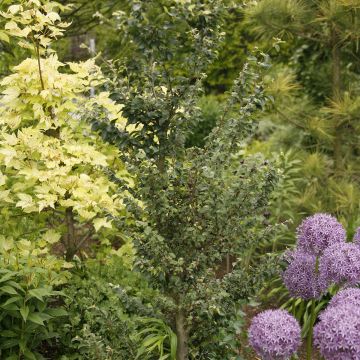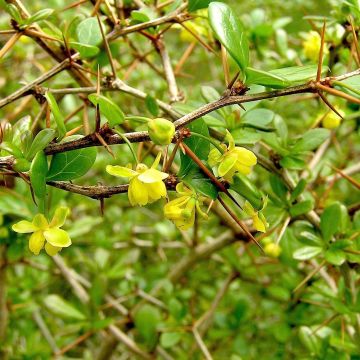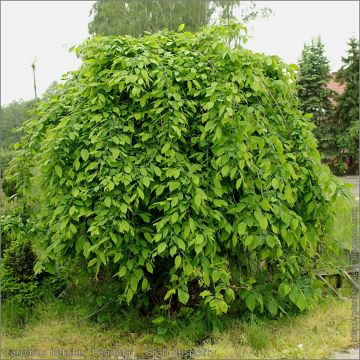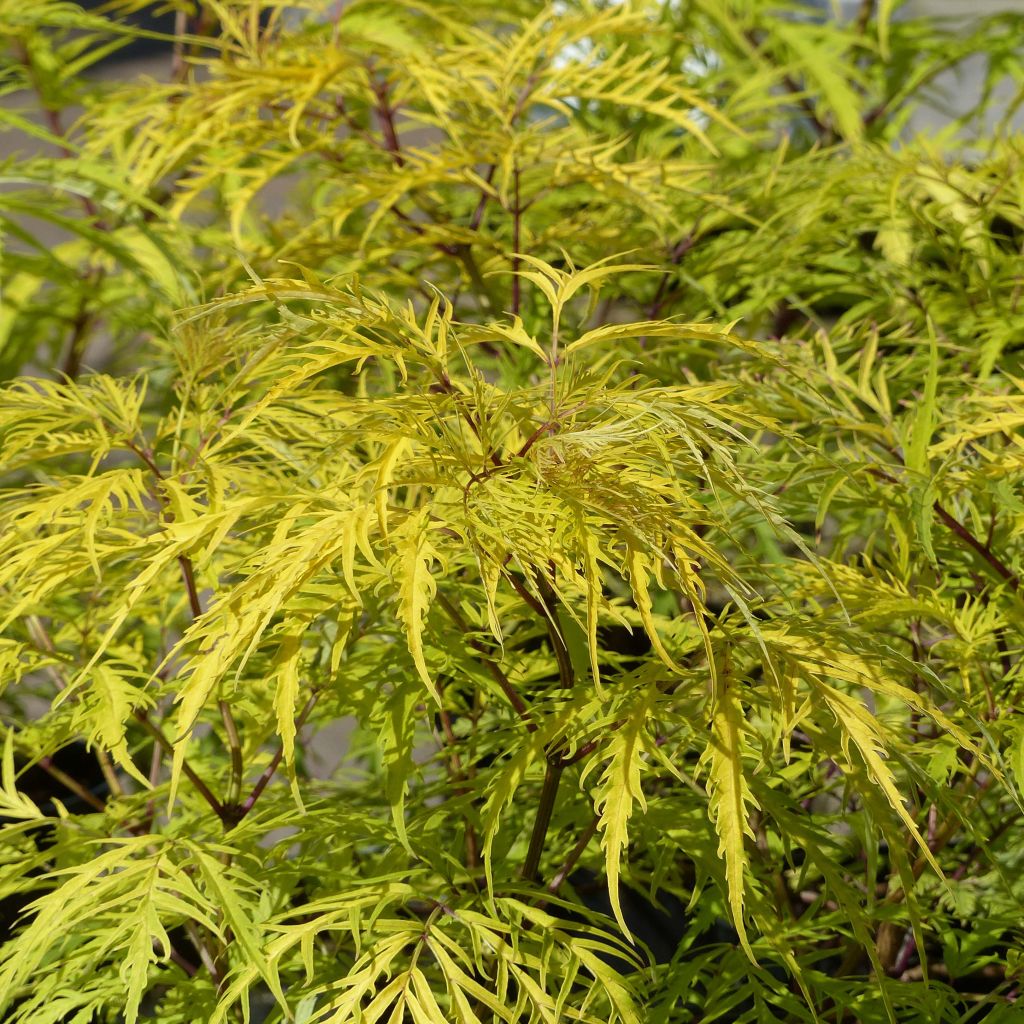

Sambucus racemosa Welsh Gold - European Red Elder
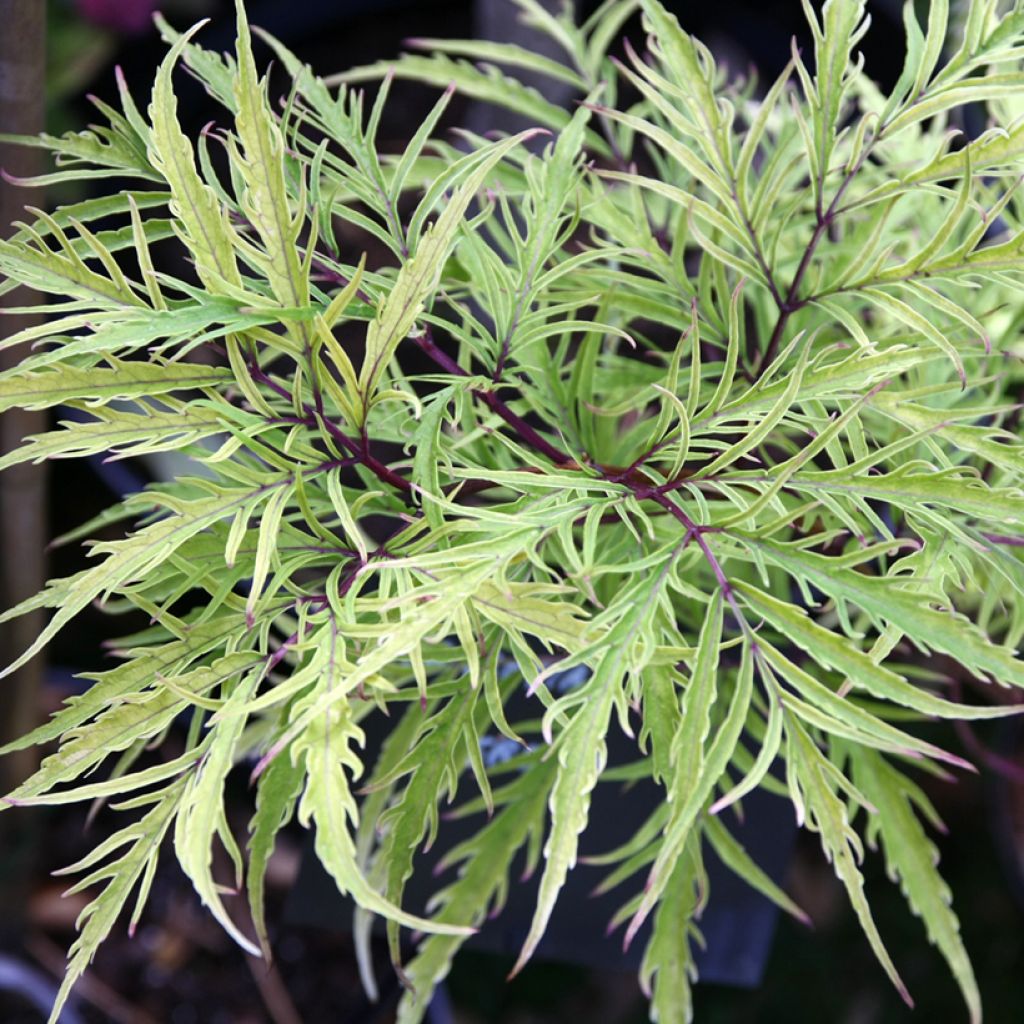

Sambucus racemosa Welsh Gold - European Red Elder
Sambucus racemosa Welsh Gold - European Red Elder
Sambucus racemosa Welsh Gold
European Red Elder, Red Elderberry, Red-berried Elder
I'm coming back to you regarding my order 100537877 as out of the 3 plants I ordered, 2 have not returned this spring. You suggested a refund, which I did not want because I want the replacement of the 2 Sambucus Welsh Gold. Since these plants are still not available, I sent you a message asking you to replace these 2 plants with 2 Sambucus racemosa Lemony Lace of equal value. To this day, I haven't received anything, not even a response to my message from 18.10.2020 or my reminder from 26.10.2020. Bravo, Promesse de fleurs customer service. The word "promise" does not match your services...
Fabienne, 24/11/2020
Why not try an alternative variety in stock?
View all →This plant carries a 24 months recovery warranty
More information
We guarantee the quality of our plants for a full growing cycle, and will replace at our expense any plant that fails to recover under normal climatic and planting conditions.
From €5.90 for pickup delivery and €6.90 for home delivery
Express home delivery from €8.90.
Delivery to Corse prohibited: UE law prohibits the import of this plant from mainland France to Corse as part of the fight against Xylella fastidiosa. Please accept our sincere apologies.
More information
Does this plant fit my garden?
Set up your Plantfit profile →
Description
Sambucus racemosa Welsh Gold is a new variety of elderberry bush, notable for its unique foliage - deeply incised and highlighted with gold and bronze - and for its modest size that allows it to fit into even the smallest garden. Its spring flowering in large white-pink umbels, and its pretty red berries, add to its charm. Light, striking like a Japanese maple, unobtrusive, and easy to grow in ordinary soil, requiring little maintenance, this truly superb bush has many assets for the garden.
A very hardy wild species widespread in Europe, North Africa, and as far as Asia Minor, Sambucus racemosa or mountain elderberry is a deciduous bush of the Caprifoliaceae family, like honeysuckles, weigelas, and valerians.
The 'Welsh Gold' variety distinguishes itself by a more modest growth, and remarkably architectural and colourful foliage. The plant has a bushy habit with trailing branches, and forms a mass 2m (7ft) high and 1.50m (5ft) wide at maturity, somewhat undefined and covered with extraordinary feathery foliage. Its growth is rapid. The deciduous leaves, opposite, have 7 finely incised leaflets with toothed edges, 20cm (8in) long and almost fluorescent. They are green-bronze in colour and turn yellow in summer. Honey producing, its flowering in large conical panicles of pale pink star-shaped flowers appears at the end of the stems from the month of March. This is followed by the formation of clusters loaded with very decorative round and bright red berries, which are a delight for birds.
Sambucus racemosa 'Welsh Gold' is undemanding in terms of soil type, as long as it is well-drained. It prefers partial shade and should be kept away from scorching sun. Plant it in a shrub border, preferably in the foreground, or near a doorway or window, or at the bend of a path. You can also keep it in a large pot or container for many years. It works well in combination with dark foliage plants (Physocarpus, Prunus, Berberis, Sambucus nigra Black Lace), Stanwell Perpetual cottage roses or Viburnum opulus. It also goes well with autumn colours, in front of a screen of deciduous euonymus, Cotinus, Hydrangea quercifolia, or Parrotia persica.
In the garden: Elderberry leaves are known to accelerate compost decomposition. Black elderberry leaf infusion is useful in organic gardening to combat mildew and aphid attacks, or rodents: soak 1 kg of leaves for a few days in 10 L of water, and spray as needed. It can also be planted in an orchard, where it will attract insect-eating birds.
Report an error about the product description
Sambucus racemosa Welsh Gold - European Red Elder in pictures
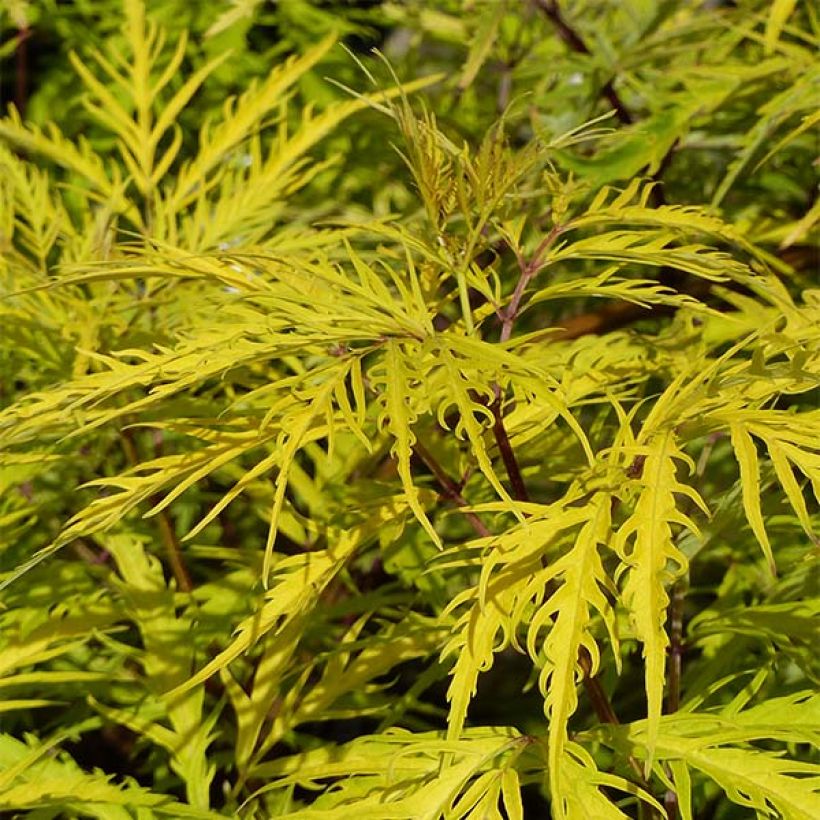

Plant habit
Flowering
Foliage
Botanical data
Sambucus
racemosa
Welsh Gold
Caprifoliaceae
European Red Elder, Red Elderberry, Red-berried Elder
Cultivar or hybrid
Other Sambucus - Elder tree
Planting and care
Sambucus racemosa 'Welsh Gold' can be planted in spring or autumn in partial shade or non-scorching sunlight. Place it in ordinary, even alkaline soil, well-drained and rich in humus. Easy to grow and undemanding, it requires little maintenance. In April-May, before flowering, prune dead or diseased wood and branches that compromise the symmetry of the bush, keeping only the vigorous branches. Sambucus can tolerate hard pruning, but keep a minimum of old branches as flowering will occur on unpruned branches.
Planting period
Intended location
Care
-
, onOrder confirmed
Reply from on Promesse de fleurs
Hedge shrubs
Haven't found what you were looking for?
Hardiness is the lowest winter temperature a plant can endure without suffering serious damage or even dying. However, hardiness is affected by location (a sheltered area, such as a patio), protection (winter cover) and soil type (hardiness is improved by well-drained soil).

Photo Sharing Terms & Conditions
In order to encourage gardeners to interact and share their experiences, Promesse de fleurs offers various media enabling content to be uploaded onto its Site - in particular via the ‘Photo sharing’ module.
The User agrees to refrain from:
- Posting any content that is illegal, prejudicial, insulting, racist, inciteful to hatred, revisionist, contrary to public decency, that infringes on privacy or on the privacy rights of third parties, in particular the publicity rights of persons and goods, intellectual property rights, or the right to privacy.
- Submitting content on behalf of a third party;
- Impersonate the identity of a third party and/or publish any personal information about a third party;
In general, the User undertakes to refrain from any unethical behaviour.
All Content (in particular text, comments, files, images, photos, videos, creative works, etc.), which may be subject to property or intellectual property rights, image or other private rights, shall remain the property of the User, subject to the limited rights granted by the terms of the licence granted by Promesse de fleurs as stated below. Users are at liberty to publish or not to publish such Content on the Site, notably via the ‘Photo Sharing’ facility, and accept that this Content shall be made public and freely accessible, notably on the Internet.
Users further acknowledge, undertake to have ,and guarantee that they hold all necessary rights and permissions to publish such material on the Site, in particular with regard to the legislation in force pertaining to any privacy, property, intellectual property, image, or contractual rights, or rights of any other nature. By publishing such Content on the Site, Users acknowledge accepting full liability as publishers of the Content within the meaning of the law, and grant Promesse de fleurs, free of charge, an inclusive, worldwide licence for the said Content for the entire duration of its publication, including all reproduction, representation, up/downloading, displaying, performing, transmission, and storage rights.
Users also grant permission for their name to be linked to the Content and accept that this link may not always be made available.
By engaging in posting material, Users consent to their Content becoming automatically accessible on the Internet, in particular on other sites and/or blogs and/or web pages of the Promesse de fleurs site, including in particular social pages and the Promesse de fleurs catalogue.
Users may secure the removal of entrusted content free of charge by issuing a simple request via our contact form.
The flowering period indicated on our website applies to countries and regions located in USDA zone 8 (France, the United Kingdom, Ireland, the Netherlands, etc.)
It will vary according to where you live:
- In zones 9 to 10 (Italy, Spain, Greece, etc.), flowering will occur about 2 to 4 weeks earlier.
- In zones 6 to 7 (Germany, Poland, Slovenia, and lower mountainous regions), flowering will be delayed by 2 to 3 weeks.
- In zone 5 (Central Europe, Scandinavia), blooming will be delayed by 3 to 5 weeks.
In temperate climates, pruning of spring-flowering shrubs (forsythia, spireas, etc.) should be done just after flowering.
Pruning of summer-flowering shrubs (Indian Lilac, Perovskia, etc.) can be done in winter or spring.
In cold regions as well as with frost-sensitive plants, avoid pruning too early when severe frosts may still occur.
The planting period indicated on our website applies to countries and regions located in USDA zone 8 (France, United Kingdom, Ireland, Netherlands).
It will vary according to where you live:
- In Mediterranean zones (Marseille, Madrid, Milan, etc.), autumn and winter are the best planting periods.
- In continental zones (Strasbourg, Munich, Vienna, etc.), delay planting by 2 to 3 weeks in spring and bring it forward by 2 to 4 weeks in autumn.
- In mountainous regions (the Alps, Pyrenees, Carpathians, etc.), it is best to plant in late spring (May-June) or late summer (August-September).
The harvesting period indicated on our website applies to countries and regions in USDA zone 8 (France, England, Ireland, the Netherlands).
In colder areas (Scandinavia, Poland, Austria...) fruit and vegetable harvests are likely to be delayed by 3-4 weeks.
In warmer areas (Italy, Spain, Greece, etc.), harvesting will probably take place earlier, depending on weather conditions.
The sowing periods indicated on our website apply to countries and regions within USDA Zone 8 (France, UK, Ireland, Netherlands).
In colder areas (Scandinavia, Poland, Austria...), delay any outdoor sowing by 3-4 weeks, or sow under glass.
In warmer climes (Italy, Spain, Greece, etc.), bring outdoor sowing forward by a few weeks.


































